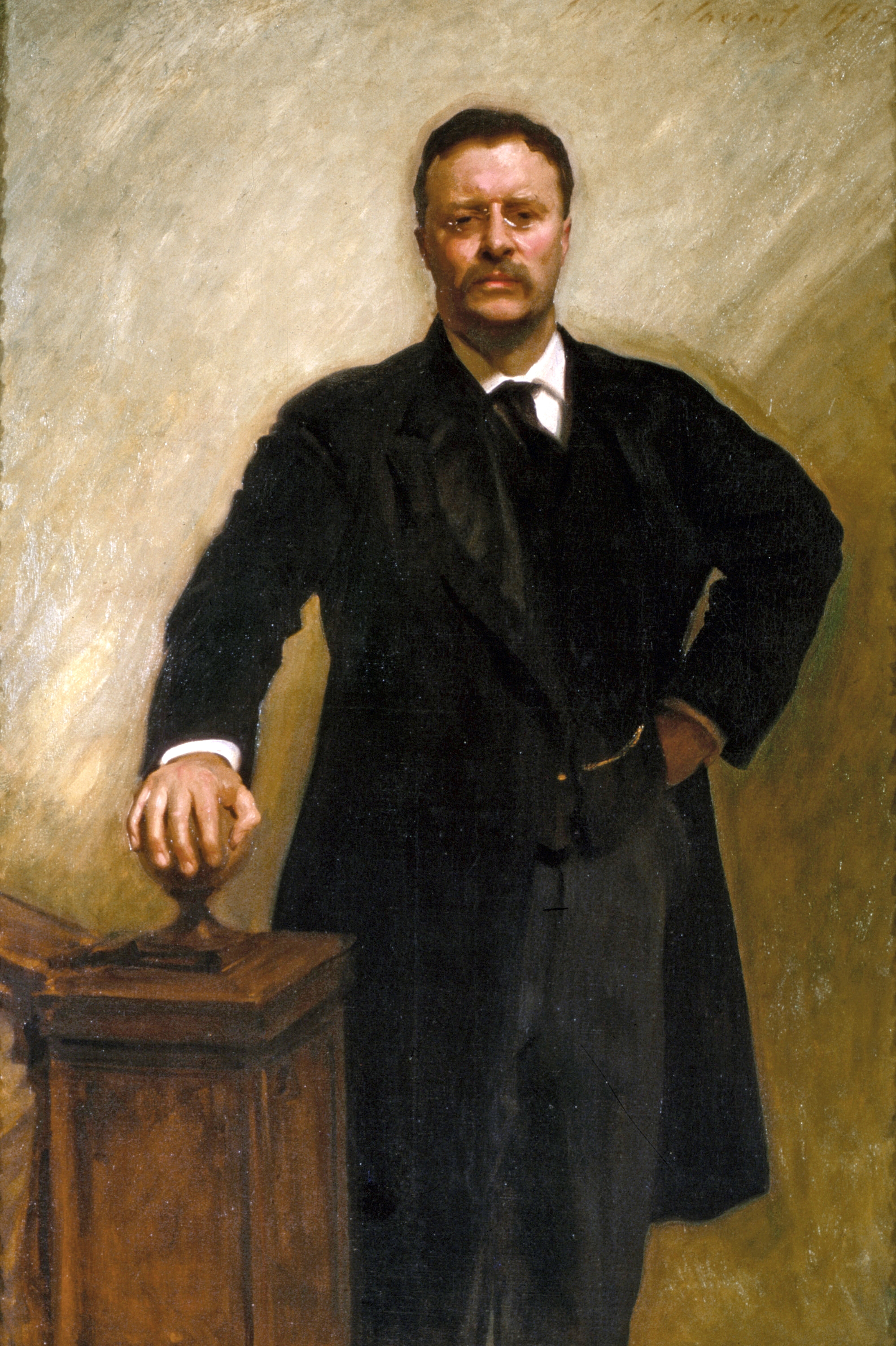It happened today - August 7, 2015
 Teddy Roosevelt is a genuinely admirable, if genuinely weird, figure in American history. But August 7 is not a good day in his life because on that date, in 1912, he was nominated for president by the “Bull Moose” party.
Teddy Roosevelt is a genuinely admirable, if genuinely weird, figure in American history. But August 7 is not a good day in his life because on that date, in 1912, he was nominated for president by the “Bull Moose” party.
Why is that bad? I mean clearly this is an embarrassing name for a political party. OK, formally it was the “Progressive” party, and it stood for causes like women voting, direct election of the U.S. Senate, tariff reduction and other reforms. But it was pretty universally known as the Bull Moose party thanks to TR’s characteristically colorful description of himself as “fit as a bull moose” and ready to run.
One cringes at a grown man, even “Teddy” Roosevelt (a nickname he hated, BTW), standing next to a running mate (Californian Hiram Johnson) who was holding a sign saying “I want to be a bull moose/ and with the bull moose stand./ With antlers on my forehead/ and a big stick in my hand.” There’s nothing good about that except the reminder when politics today seems unspeakably mindless that it has rarely been an elevated pursuit. But then, if cringe-worthy moments reduce you to jelly you shouldn’t even think of running for office.
No, what’s bad about this renomination is how he got here and where it led.
Roosevelt, you may recall, was a reformist Republican, a progressive and a war hero, who was chosen as a ticket-balancer for the very successful President William McKinley’s reelection campaign in 1900. McKinley’s previous VP Garrett Augustus Hobart having made his one and only mark on history by dying unexpectedly at age 55 in 1899 which brought TR to the White House because McKinley won the 1900 election and then was assassinated by an anarchist in September in the only politically motivated assassination in U.S. presidential politics.
It didn’t work. Whatever assassin Leon Czolgosz disliked about McKinley, he would not have liked TR better (he never got the chance, being executed on October 29, 1901). An aggressive domestic reformer who sought to save capitalism not replace it, Roosevelt was an active, sometimes hyperactive yet prudent nationalist geopolitician abroad, speaking softly while carrying a big stick, driving through the Panama Canal so the U.S. Navy could operate in the Atlantic and Pacific simultaneously, winning the Nobel Peace Prize for mediating the Russo-Japanese War, and warning the Kaiser against excessive pressure on France in the Moroccan crisis of 1906.
So what’s the problem? I’m glad you asked.
In 1908 Roosevelt felt to run again after serving the bulk of McKinley’s term and then being elected in his own right in 1904 would violate the spirit of Washington’s example of refusing to seek a third term. Instead he essentially forced his own choice of successor on the GOP, his friend and trusted subordinate William Howard Taft.
Taft won in 1908. But he hated being president and wasn’t good at it. By 1912 TR had soured on Taft and wanted “his” party back. But Taft resented the way Roosevelt treated him, including over the nomination, and refused to step aside. Roosevelt childishly chose to run on a third party ticket and, by splitting the Republican vote, handed the election to the creepy, haughty, moralistic, bigoted and highly ineffective Democrat Woodrow Wilson, who was therefore president in the critical year and a half leading up to World War I, and utterly failed to rise to the occasion.
Indeed, even once the war started Wilson failed to grasp what was at stake. When a German U-boat sunk the Lusitania and the Germans used poison gas in Ypres, Wilson priggishly declared himself “too proud to fight”. As late as 1916 Wilson dismissed the war as “a drunken brawl in a public house” of no concern to Americans and campaigned on the slogan “He kept us out of the war” before blundering into it without making military preparations. Far better for the world if he’d jumped in in 1914.
Better still, much better, if the U.S. had deterred the war by making clear to Germany that an attack on France, and war with Britain, meant war with the United States. And I am entirely confident that TR would have seen the necessity of such deterrence and acted with characteristic decisiveness. Even Taft would probably have grasped the danger of Germany’s lunge for world domination, especially given suitable advice and backing from his former mentor.
Why, then, is what happened instead mainly Roosevelt’s fault? For starters he should have found himself something useful to do after 1908. I applaud his respecting the spirit of Washington’s self-denying refusal to seek a third term. But as a relatively young and absurdly energetic man he was bound to get in trouble otherwise. For another thing in his deteriorating relationship with Taft he let his childish side get the better of him.
Taft, for his part, should have swallowed Roosevelt’s ill manners and stepped aside from a job he didn’t like and knew he wasn’t good at. But he didn’t, in large part because of the way Roosevelt mistreated his former friend and protégé. I mostly blame TR because he was the dominant figure in their relationship and on the national stage. And this absurd spat had incalculable evil consequences for the world by allowing World War I first to erupt and then go on so long with such a destructive demographic, economic and moral impact on Western civilization.